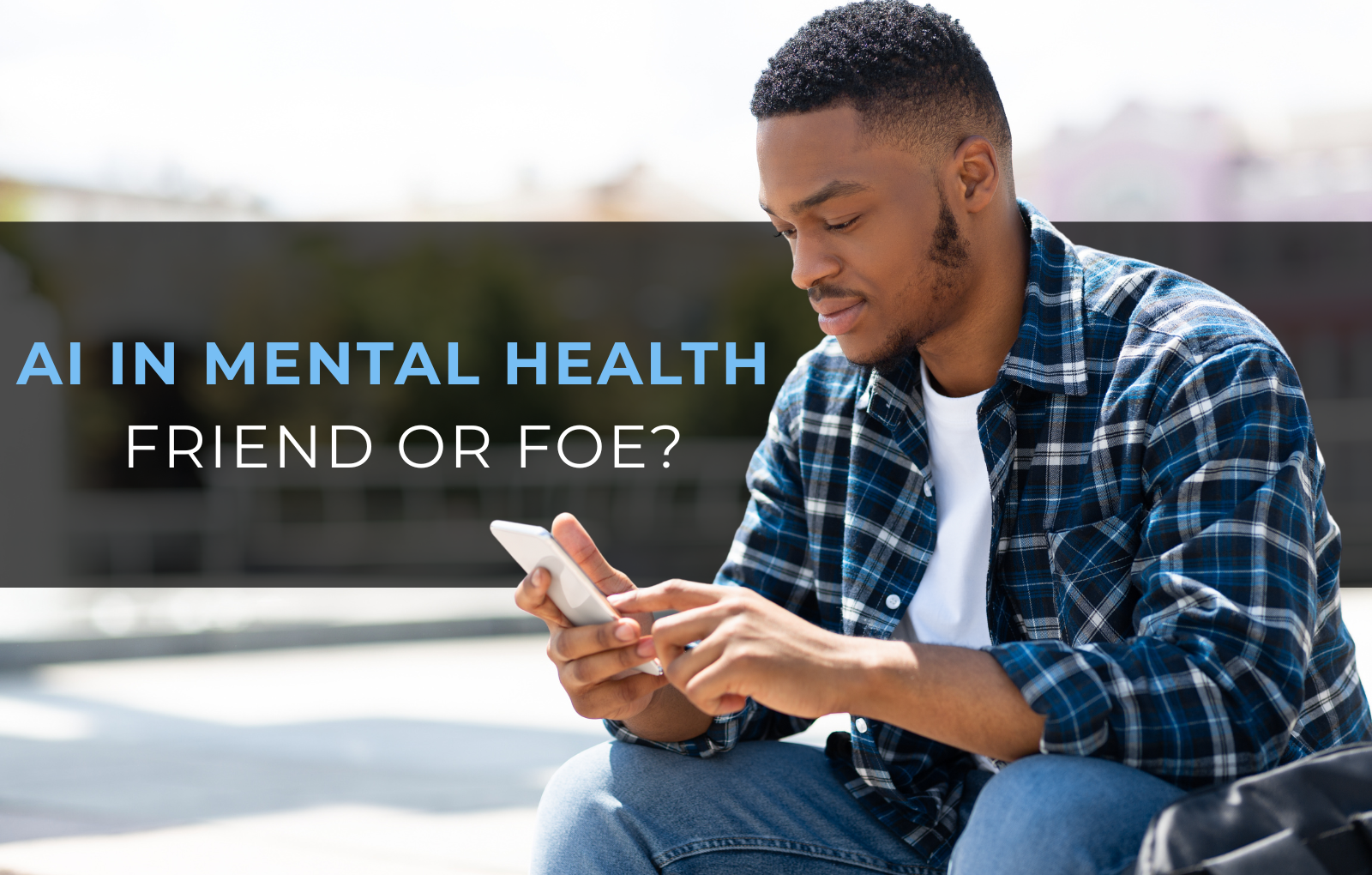
Artificial intelligence is rapidly changing the landscape of mental health support, but its rise is not without controversy. Many people, including clinicians, are rightfully cautious about using AI in such a sensitive field. The tragic news of individuals dying by self-harm after interacting with AI chatbots, along with stories of systems being biased or providing misinformation, has put the entire industry under a microscope.
AI in mental health, when used correctly, can be a powerful tool to complement human therapy. However, is it enough of a help to combat the possible risks? Here at Pocket Mate, we believe in the importance of transparency regarding AI in mental health support. We hope to provide some insightful knowledge from our experts to offer more context on this important topic.
It’s important to understand the specific risks and benefits associated with AI in mental health before you begin using it, whether that is as a user or as a clinician. This kind of education helps people know when to use these tools effectively and, most importantly, when not to.
The truth is, AI is never meant to be a sole source of help. It’s designed to be a supportive companion, providing a listening ear in between therapy sessions when human help might not be available.
The real danger of AI in mental health doesn't come from the technology itself, but from its misuse and the lack of proper oversight. A few significant risks include, but are not limited to:
Yes, some of these risks are significant. However, it’s important to remember that all tools in mental health, and in life, come with risks. The true value of any tool is not just in its existence, but in how it’s used.
When used responsibly, AI in mental health can be a transformative force for good. Its greatest strengths lie in its ability to fill the gaps in traditional care, making support more accessible and effective for everyone.
The intense public scrutiny surrounding AI in mental health is what pushes responsible AI companies to create platforms with the utmost care for their users' safety and well-being. But the responsibility for a safe and successful mental health journey doesn't lie solely with the companies. It also rests with the professionals who recommend these tools and, most importantly, with the users themselves.
When it comes to your well-being, you are the most important person on the team. An AI chatbot is not a passive tool; it’s an interactive resource that requires you to be an active and informed participant. It's crucial to approach these conversations with a healthy sense of awareness, understanding that while the AI can offer support and guidance, it cannot replace your own judgment.
Your role is to use the AI to help you articulate your feelings, explore potential coping strategies, and prepare for conversations with a human professional. The AI is a safe space to practice, to process, and to gather information, but it is a tool, not a doctor. By actively using it in this way, you can build your confidence and make therapy sessions more productive.
As mental health professionals, our role is to act as guides and educators. We have a responsibility to be knowledgeable about the AI tools our patients might be using and to provide them with the guidance necessary to use them safely. Instead of being skeptical of this new technology, we should embrace it as a way to expand our reach and empower our patients.
We can guide our patients to use AI to help them stay on track between sessions, use it as a resource to find more information, and find the right therapeutic modality for them. We have a responsibility to combat misinformation and to teach our patients that AI is not an end in itself, but a new, powerful beginning in their journey to mental wellness. We can be a bridge that connects them to a safe and secure world of support, both human and artificial.
When exploring the world of AI in mental health tools, users and professionals alike must know how to spot a company that is truly committed to safety and ethical designs. The responsibility for building these applications falls on the businesses behind them, and their commitment to transparency and user protection should be a top priority.
Here are the key signs to look for that signal a company is safe and responsible with AI:
Ultimately, AI is a powerful tool, and a company's integrity is defined by how it builds, maintains, and presents that tool. By recognizing these key signs, you can confidently choose an AI companion that prioritizes your safety and well-being.
AI Listener is designed to be that trusted companion. With HIPAA compliance, a clear "support, not a therapist" approach, and a focus on user education, we empower you to take control of your mental wellness journey safely.